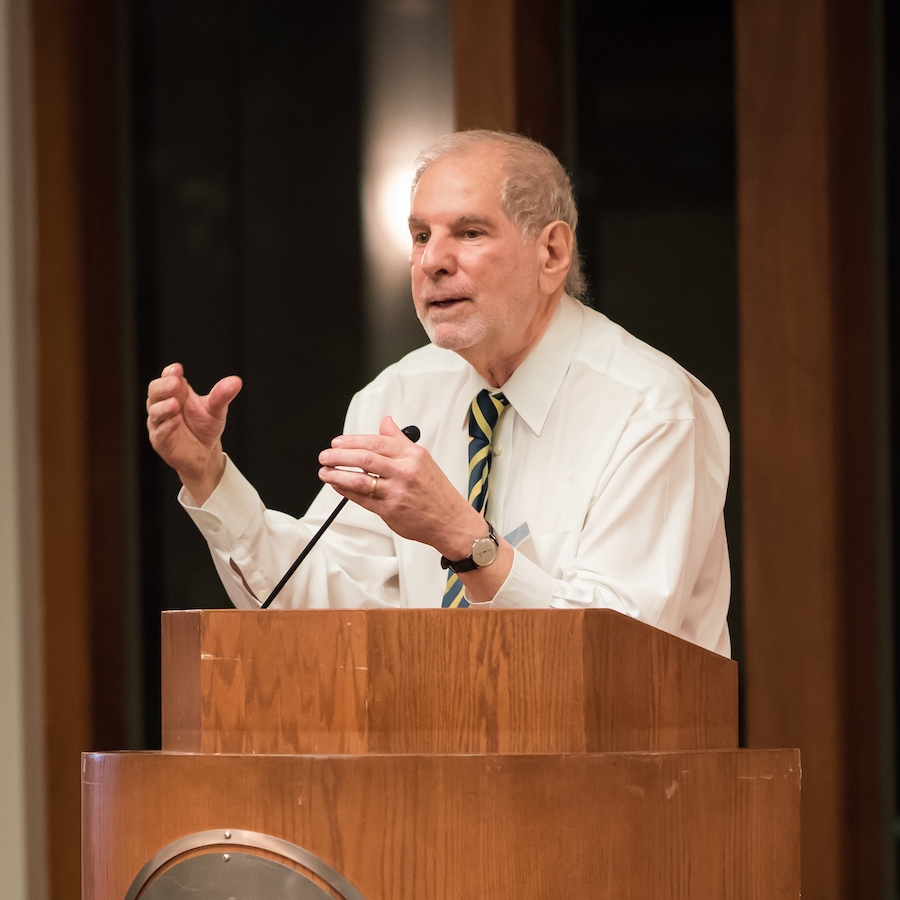Ready
For
Launch
“When will I ever use this in the real world?”
It’s a question math teachers hear every day.
The truth is, for high school students on a path to engineering or medicine, that answer may be obvious. For many other students, the connection between their math classes and their college and career plans isn’t clear.
So math becomes a barrier for many students transitioning from high school to college, especially those who are first-generation, low-income or from diverse backgrounds. That’s
The Charles A. Dana Center at The University of Texas at Austin is introducing a multi-year strategy—known as the Launch Years initiative—to address this by focusing on the transition from students’ junior year of high school through their junior year of college, the most critical timeframe for student success.
“The Launch Years initiative puts forward a fundamentally new approach to mathematics,” says Uri Treisman, executive director of the center, which has supported K-12 and postsecondary math education across Texas and the U.S. since 1991. “It maintains the rigor needed for postsecondary degrees and high-demand jobs, while also creating new pathways for significantly more students—including those traditionally underserved—to thrive in college and realize their dreams.”
Through a strategy that combines research with collaboration and consensus-building, Launch Years looks to create relevant math pathways from high school to college that better align with students’ career interests and programs of study. Research shows that when students can take math courses that are relevant to their interests, their engagement, motivation
The Dana Center works to improve student engagement, motivation, persistence and achievement through innovations in math and science education. Their research supports educators, administrators, policymakers and other partners in K-12 and higher education.

The center’s executive director, Uri Treisman, is a national leader in mathematics education and has been honored with service awards from the National Council of Supervisors of Mathematics, the American Mathematical Association of Two-Year Colleges and, most recently, the Mathematical Association of America.
Over several years, the Dana Center will work in three states to analyze mathematics policies, programs
This innovative work is backed by a $6.68 million grant from the Bill & Melinda Gates Foundation. “Our work in higher education confirms what we hear often about the field. When students engage with mathematics relevant to their program of study and their interests, math becomes more accessible and students are more motivated and more likely to succeed,” says Bob Hughes, director of K-12 programs at the Gates Foundation.
“The Launch Years project provides an important opportunity to extend these promising concepts into high school, ensuring that the courses students take reflect the types of quantitative skills they need in their lives, preparing them to succeed not only in their first college math
A foundation for
changing the world
The Bill & Melinda Gates Foundation supports world-changing research and education across the Forty Acres
Make an Impact
More from this series
Robotics Revolution
Visionary venture capitalist Bill Gurley — early investor in household names like Uber and Zillow — helps power a robotics revolution at UT.
The Gift of Time
Over nearly 40 years, the Terry Foundation has invested more than $100 million in scholarships for Longhorns poised to change the world.
Breaking Ground
A visionary investment from Jim and Miriam Mulva is helping to build a new tower on the Forty Acres and adding state-of-the-art new facilities to the McCombs School of Business.


